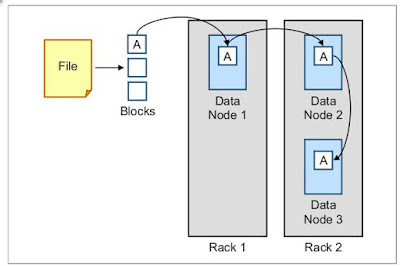The Impact of Agentic AI on Business Intelligence and Big Data
Introduction
In today’s data-driven world, organizations rely heavily on business intelligence (BI) and big data analytics to make informed decisions. However, as the volume, velocity, and variety of data grow exponentially, traditional approaches struggle to keep up. Enter Agentic AI—a new generation of artificial intelligence designed to operate autonomously, adapt dynamically, and optimize workflows in real-time. Unlike conventional AI models that require human supervision, Agentic AI acts like a self-directed agent, capable of planning, reasoning, and executing tasks independently. Its impact on business intelligence and big data is profound, reshaping the way organizations collect, analyze, and leverage insights.
Understanding Agentic AI
Agentic AI extends beyond predictive modeling or static automation. It possesses:
-
Autonomy – the ability to act independently in decision-making.
-
Adaptability – continuous learning from changing datasets.
-
Goal-Oriented Reasoning – aligning actions with business objectives.
-
Collaboration – interacting with other AI systems, humans, and databases seamlessly.
These features allow Agentic AI to function not just as a tool but as a strategic partner in BI and big data ecosystems.
Agentic AI in Business Intelligence
Business intelligence tools traditionally rely on descriptive dashboards and predefined queries. Agentic AI enhances this landscape by:
-
Automated Data Exploration – uncovering hidden correlations without manual input.
-
Natural Language Interaction – enabling executives to ask business questions in plain language and receive actionable insights.
-
Adaptive Dashboards – evolving visualizations based on organizational priorities.
-
Real-Time Alerts – monitoring KPIs and notifying stakeholders of anomalies instantly.
This shift transforms BI from a reactive reporting function into a proactive decision-making engine.
Agentic AI in Big Data Management
Big data comes with challenges such as data silos, quality issues, and processing delays. Agentic AI addresses these by:
-
Data Cleaning and Preparation – autonomously detecting inconsistencies and correcting errors.
-
Scalable Data Processing – intelligently distributing workloads across clusters.
-
Context-Aware Analytics – understanding the business context of data for more meaningful insights.
-
Predictive and Prescriptive Insights – moving from “what happened” to “what will happen” and “what should we do.”
Through automation and reasoning, Agentic AI reduces the time to insight, empowering businesses to act with greater speed and precision.
Business Advantages of Agentic AI in BI and Big Data
Organizations that integrate Agentic AI gain significant benefits, including:
-
Faster Decision-Making – real-time data interpretation improves agility.
-
Enhanced Accuracy – reduced human errors in analysis and reporting.
-
Cost Efficiency – automated workflows lower operational expenses.
-
Competitive Advantage – predictive insights enable proactive strategies.
-
Personalized Intelligence – tailored recommendations for departments, teams, or customers.
In essence, Agentic AI transforms big data from a complex challenge into a strategic asset.
Challenges and Considerations
While promising, adoption comes with challenges:
-
Data Privacy and Security – autonomous decision-making raises compliance concerns.
-
Ethical AI Use – transparency and accountability must be ensured.
-
Integration Complexity – aligning Agentic AI with existing BI platforms requires planning.
-
Skill Gaps – organizations must upskill employees to work alongside intelligent agents.
A balanced approach ensures businesses maximize benefits while mitigating risks.
Future Outlook
The future of BI and big data lies in agentic ecosystems where AI agents collaborate with each other and humans in real-time. We can expect:
-
Hyper-Automated Enterprises – minimal human intervention in data workflows.
-
Self-Evolving Dashboards – adapting visualizations to new market conditions.
-
AI-Augmented Decision Boards – human executives working with AI agents as equals.
-
Industry-Specific AI Agents – specialized intelligence for healthcare, finance, retail, and manufacturing.
Agentic AI will not replace human decision-makers but rather augment their capabilities, enabling faster, smarter, and more ethical business intelligence.
Conclusion
The impact of Agentic AI on business intelligence and big data is transformative. By combining autonomy, adaptability, and intelligence, it elevates analytics from static reporting to dynamic, predictive, and prescriptive decision-making. Businesses that embrace Agentic AI will not only keep pace with the data explosion but also turn information into innovation—securing a powerful edge in the digital economy.




Comments
Post a Comment